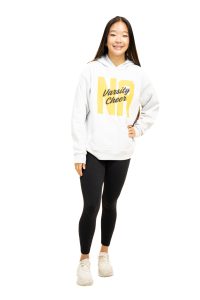In the Bag
The plastic bag ban in Pittsburgh has been pushed back six months, but it is still a controversial topic amongst NASH students.
Pittsburgh is now set to ban plastic bags beginning October 14th, 2023.
April 10, 2023
For people like NASH junior Abs Ziegenfuss, making the permanent switch to plastic-free bags when shopping has been easy.
“It really is not that big of an effort for me personally,” she said. “I’m making a huge difference towards the environment.”
On the other hand, junior Jack Miara sees the drawbacks.
“It is way less convenient because reusable bags are a huge expense in the long run both for customers and stores,” he said.
A plastic bag ban in the city of Pittsburgh was set to begin this spring. However, the ban is now being pushed back six months to October 14th, 2023. This delay is intended to provide businesses with more time to transition to plastic-free bags, but the city is encouraging companies to work towards this goal before the deadline.
The only plastics permitted to be used by stores will be exclusively for packaging meat, vegetables, pet waste, and garbage. Stores will be required to post notices of their plastic bag ban starting 90 days prior to October 14th, 2023. This effort in Pittsburgh is said to reduce the amount of plastic that finds its way into rivers and landfills.
“Plastic bags are one of the biggest environmental concerns and I want to contribute to limiting their effects,” Ziegenfuss said. “The ban will dramatically reduce our plastic use, so I support it.”
One of the reasons that Miara is adamantly against the ban is that “plastic bags are easy, and they are much more convenient for people who are always on the move.”
A part of this initiative, viewed as a downside by many, is that if one does not supply their own bags, they will have to pay ten cents per paper bag from the store.
“I don’t have paper bags or reusable bags at home, so if I forget to buy reusable ones, I will have to pay more money each time I go to the store,” Miara said. “I just want to be able to go to a store and not worry about remembering to bring bags with me each time, the way it has always been.”
Others, though, who already practice using reusable bags, are hardly bothered.
“I enjoy bringing my own bags to the stores I go to,” Ziegenfuss mentioned. “You can usually fit more in reusable bags and they do not really seem to break as easily.”
For the environmentally-minded, the move away from plastic bags is a step towards a cleaner future. But for the economically-driven, it is a setback that is not only inconvenient but also financially imprudent.













